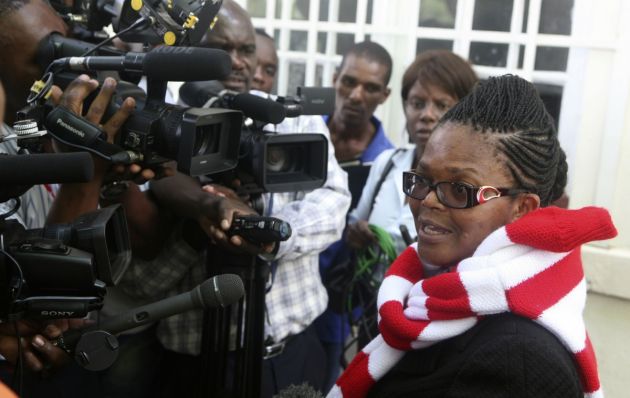Major churches in Zimbabwe unite to form peace group

The major churches in Zimbabwe have united under an umbrella to lead peace and curb the violence that has flared up at election times in the southern African country.
The group is called the Ecumenical Peace Observation Initiative in Zimbabwe.
EPOIZ was officially launched on March 26 to "promote peace in the run up to, during and after the country's election."
The bedrock of the group is three of the country's biggest church bodies - The Zimbabwe Catholic Bishops Conference, the Zimbabwe Council of Churches, and the Evangelical Fellowship of Zimbabwe.
The recent arrest of human rights lawyer Beatrice Mtetwa, who was released after spending eight days in jail and charged with allegedly obstructing justice, may be one of its first challenges.
A champion of those detained without trial she was arrested at the home of an aide to President Robert Mugabe's rival Prime Minister Morgan Tsvangirai, his director of research and policy, Thabani Mpofu.
Prosecutors said Mtetwa shouted at the police officers and took photographs of them as they searched the house.
Mpofu himself and three other communication staffers in Tsvangirai's office endured 10 days in prison after they were arrested on charges of illegally compiling information on high-level corruption.
The arrest came at a time when a crackdown on civil society was either being brushed aside or not being taken seriously.
Mtetwa's arrest came some in Zimbabwe were celebrating the peaceful environment that prevailed during a recent constitutional referendum that would restrict the powers of the president.
It was seen as predicator of the manner in which the forthcoming elections would be held.
In a 2006 interview with PBS Mtetwa said, "The most incredible thing about Zimbabwe is that it looks like it is working. The government doesn't go out there and do things without following the law.
"What they do is change the law to make it what they want it to be. So there's all this veneer of respectability, of a system that works."
The head of Zimbabwe's Zanu-PF party, Mugabe, who is 89, became leader of his country in 1980 and has refused to accept the results of past elections he did not like.
The director of the newly-formed umbrella body, Tendai Maregere, said that EPOIZ will play a coordinating role for the churches' common message of peace.
"The church has always played a vital role in peace, conflict resolution, and mediation throughout Zimbabwe's turbulent political history and we are simply carrying forward that role.
"The church has also exposed human right abuses and pointed out the excesses of the state," Maregere said.
Maregere said that launching the group ahead of election scheduled to take place later this year is done in recognizing that Zimbabwe's elections are often violent and traumatic events for citizens.
"This is informed by our past experience of intolerance, intimidation and violence," said Maregere.
"At key moments in our history people have suffered the effects of violence; from the colonial system through the liberation struggle and after independence," the group said.
Maregere revealed that as part of its peace mandate, the churches had been actively involved in setting up the election monitoring group the Zimbabwe Elections Support Network, and the Zimbabwe Peace Project - which monitors human rights abuses.
He was asked by SW Radio Africa if the new project will work, given that its launch coincides with rising political tensions ahead of elections, with the police already cracking down on civic education groups.
He said, "We have already met with President Robert Mugabe, who is the Commander-In-Chief of the Defence Forces, and he gave us his blessings to roll out this campaign."